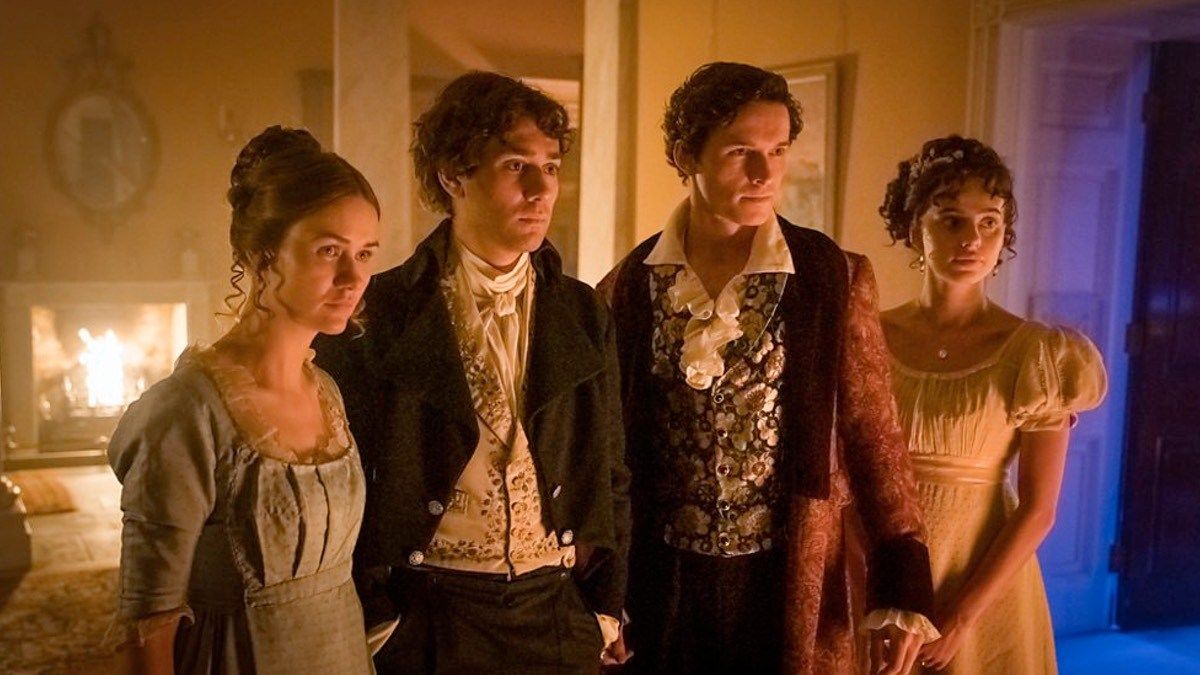WARNING: The following contains major spoilers for the latest episode of Doctor Who, “The Haunting of Villa Diodati,” which premiered Sunday on BBC.
In the latest episode of Doctor Who, Jodie Whittaker's Thirteenth Doctor and her companions traveled to the year 1816 where they met Mary Shelley, Lord Byron, John Polidori and Percy Bysshe Shelley. They arrive at a pivotal point in history when the idea for two celebrated stories would be born: Mary Shelley's Frankenstein and Polidori's The Vampyre.
The Doctor's visit comes at just the right time too, given that a piece of Cybermen technology called Cyberium traveled from the future and found a host in Percy Bysshe Shelley. This change in the timeline altered the events at the Villa Diodati in the fateful summer of 1816. Thankfully, Mary Shelley still found inspiration for Frankenstein in the lone Cyberman. What's more, "The Haunting of Villa Diodati" also gives new meaning to a classic work of English literature: Lord Byron's famous poem, Darkness.
Lord Byron, aka George Gordon Byron, was a politician and poet closely associated with the Romantic era in the 19th century. His poem Darkness was written in 1816, which would become known as the Year Without a Summer after the eruption of Mount Tambora in the region we now know as Indonesia. The eruption was so massive that it affected the climate on a global scale, plunging North America and Europe into both cold and darkness. While this weather is what is commonly known to have inspired the poem, "The Haunting of Villa Diodati" reveals another source of inspiration: the Doctor herself.
Throughout most of the episode, the Doctor interacts with all four famous authors. However, ever the romantic, Lord Byron wastes no opportunity to court the Doctor. She fascinates him, and he makes advances toward her on multiple occasions -- advances that she halts at every turn. Still, despite her rebukes, the heroic Doctor continues to inspire Lord Byron.
As the episode comes to a close, the Doctor and her companions are back in the TARDIS ready to travel to the future to stop the lone Cyberman from bringing back the Cybermen empire. As for the famous authors, they are sitting in a park where Lord Byron reads his most recent work, which we recognize as the poem Darkness. The segment that is read offers the last fourteen verses of the poem.
"The world was void,
The populous and the powerful was a lump,
Seasonless, herbless, treeless, manless, lifeless-
A lump of death -- a chaos of hard clay.
The rivers, lakes and ocean all stood still,
And nothing stirr'd within their silent depths;
Ships sailorless lay rotting on the sea,
And their masts fell down piecemeal: as they dropp'd
They slept on the abyss without a surge--
The waves were dead; the tides were in their grave,
The moon, their mistress, had expir'd before;
The winds were wither'd in the stagnant air,
And the clouds perish'd; Darkness had no need
Of aid from them -- She was the Universe."
However, as Byron reads the final line, "She was the Universe," the camera focuses on the Thirteenth Doctor. This makes it clear that Jodie Whittaker's Time Lord is the basis for Lord Byron's poem -- at least in part. While scholars continue to dissect the work of art and argue over its meaning, Doctor Who has gone further by offering a whole new, albeit fictional, take on the poem: this was, all this time, a poem about a steadfast woman like no other -- a woman who refused him, and who saved the entire world from monsters. A woman who, despite all of her companions, travels all of space and time alone.
Doctor Who stars Jodie Whittaker as the 13th iteration of the titular Time Lord. Whittaker is joined by co-stars Bradley Walsh, Tosin Cole and Mandip Gill in a series spearheaded by showrunner Chris Chibnall. The next episode is set to air on the BBC on Feb. 23. The new season and all previous 11 seasons will stream on HBO Max later this year.


